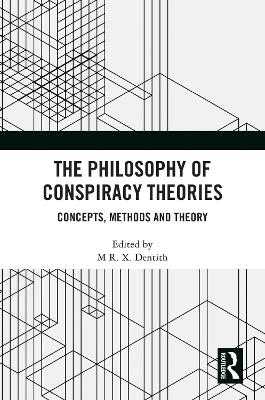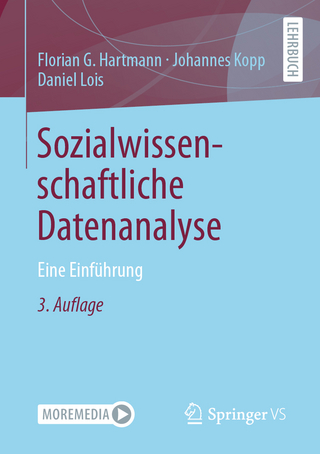
The Philosophy of Conspiracy Theories
Routledge (Verlag)
978-1-032-71138-6 (ISBN)
This book presents state of the art philosophical work on conspiracy theory research that brings in sharp focus on central and important insights concerning the supposed irrationality of conspiracy theory and conspiracy theory belief, while also proposing several novel solutions to long standing issues in the broader academic debate on these things called ‘conspiracy theories’.
It features a critical history of conspiracy theory theory, emphasising the role of the ‘first generation’ of philosophers in conspiracy theory research. This book also includes discussions of a range of key issues such as:
What counts as conspiracy theory?
Who counts as a conspiracy theorist?
How are these terms variously understood by academics and the wider public, and
Are conspiracy theories automatically suspect, and is it ever reasonable to be a conspiracy theorist?
The book then builds upon that work by looking at how people’s political views affect both the conspiracy theories they believe and their beliefs about conspiracy theories; how we might defend conspiracy theorising without endorsing mad, bad or dangerous conspiracy theories; and contains several proposals for unifying conspiracy theory research under one theoretical framework: particularism.
This volume will be a key resource for philosophers and social scientists interested in recent work on the philosophy of conspiracy theory theory and its implications for conspiracy theory research. It will also appeal to members of the public, who want to know what, if anything, is wrong with these things called “conspiracy theories”. It was originally published as a special issue of Social Epistemology.
M R. X. Dentith is Associate Professor of Philosophy at the International Center for Philosophy at Beijing Normal University at Zhuhai and School of Philosophy at Beijing Normal University, China. Their research concerns the social epistemology of conspiracy theory theory, as well as rumours, fake news, and secrecy.
The Future of the Philosophy of Conspiracy Theory: An Introduction to Conspiracy Theory Theory 1. Conspiracy Theory and (or as) Folk Psychology 2. ‘Conspiracy Theory’ as a Tonkish Term: Some Runabout Inference-Tickets from Truth to Falsehood 3. What Does It Mean for a Conspiracy Theory to Be a ‘Theory’? 4. Who is a Conspiracy Theorist? 5. Conceptual Engineering, Conceptual Domination, and the Case of Conspiracy Theories 6. Conspiracy Theories and Democratic Legitimacy 7.” That’s Just a Conspiracy Theory!”: Relevant Alternatives, Dismissive Conversational Exercitives, and the Problem of Premature Conclusions 8. Towards a Conceptual Framework for Conspiracy Theory Theories 9. Some Conspiracy Theories 10. The Normative Turn in Conspiracy Theory Theory?
| Erscheinungsdatum | 17.02.2024 |
|---|---|
| Verlagsort | London |
| Sprache | englisch |
| Maße | 174 x 246 mm |
| Gewicht | 440 g |
| Themenwelt | Geisteswissenschaften ► Philosophie |
| Sozialwissenschaften ► Kommunikation / Medien ► Medienwissenschaft | |
| Sozialwissenschaften ► Soziologie | |
| ISBN-10 | 1-032-71138-8 / 1032711388 |
| ISBN-13 | 978-1-032-71138-6 / 9781032711386 |
| Zustand | Neuware |
| Informationen gemäß Produktsicherheitsverordnung (GPSR) | |
| Haben Sie eine Frage zum Produkt? |
aus dem Bereich


